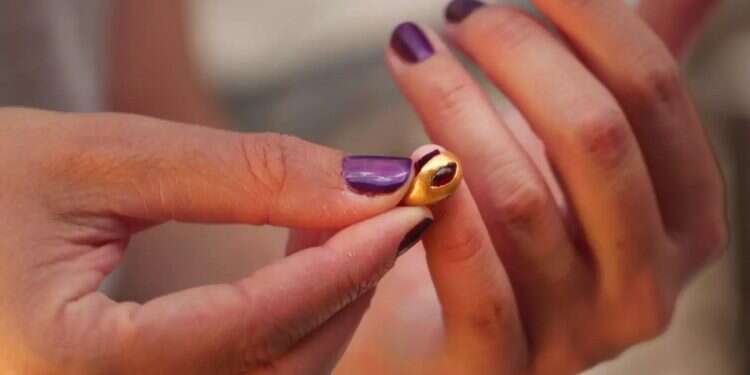An extraordinary discovery has captivated archaeologists and historians alike – a 2,300-year-old gold ring unearthed in the City of David, a renowned archaeological site in Jerusalem. The delicate artifact, likely belonging to a child during the Hellenistic period, was found during a joint excavation by the Israel Antiquities Authority and Tel Aviv University, supported by the Elad Foundation.
Tehiya Gangate, a member of the excavation team, recounted the exhilarating moment of the find: "I was sifting through the earth, and suddenly, I saw something glitter. I immediately yelled, 'I found a ring, I found a ring!' Within seconds, everyone gathered around me, and there was great excitement. This is an emotionally moving find, not the kind you find every day. In truth, I always wanted to find gold jewelry, and I am very happy this dream came true – literally a week before I went on maternity leave."
Dr. Yiftah Shalev and Riki Zalut Har-tov, directors of the excavation for the Israel Antiquities Authority, provided insights into the ring's significance. "The ring is very small. It would fit a woman's pinky, or a young girl or boy's finger," they explained. Dr. Marion Zindel noted that the ring was meticulously crafted by hammering thin gold leaves onto a metal base, reflecting the prevalent fashion of the Persian and Early Hellenistic periods from the late 4th to early 3rd century BCE.
Professor Yuval Gadot of Tel Aviv University and excavator Efrat Bocher highlighted the broader implications of this find, stating, "The recently-found gold ring joins other ornaments of the early Hellenistic period found in the City of David excavations, including the horned-animal earring and the decorated gold bead." They added, "These new finds tell a different story: The aggregate of revealed structures now constitutes an entire neighborhood. They attest to both domestic and public buildings, and that the city extended from the hilltop westward. The character of the buildings – and now, of course, the gold finds and other discoveries, display the city's healthy economy and even its elite status."
Gold jewelry was a hallmark of the Hellenistic world, with Alexander the Great's conquests facilitating the spread of luxury goods across the eastern Mediterranean Basin. Eli Escusido, head of the Israel Antiquities Authority, emphasized the significance of such discoveries, stating, "The excavation in ancient Jerusalem reveals invaluable information to us about our past."
The rare find will be exhibited to the public for the first time during the free "Jerusalem Mysteries" conference hosted by the Israel Antiquities Authority on Jerusalem Day, shedding light on the city's rich history and the lives of its inhabitants during the Hellenistic era.




